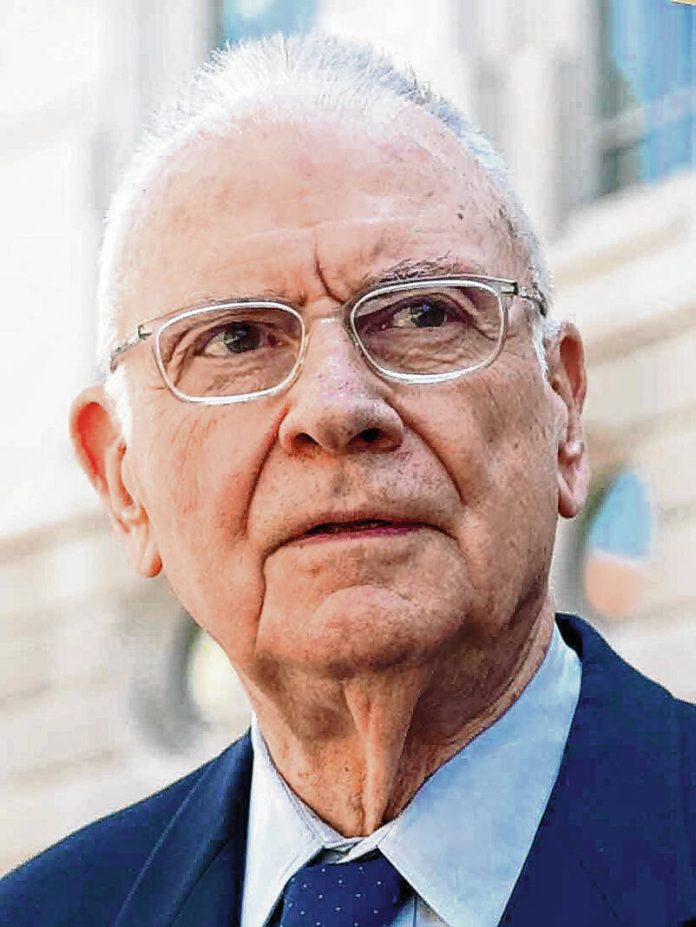Americans are more dissatisfied with their government than the citizens of any other major democracy, according to an analysis by the Washington Post. And we seem to be growing more skeptical of government every year.
In 1964, when I was first elected to Congress, nearly 80% of Americans trusted government to do the right thing all or most of the time. In a sense, it made the job easier. You knew that most constituents would trust your decisions or at least give you the benefit of the doubt.
Today, the numbers have reversed. Fewer than 20% of Americans trust government, according to polling by the Pew Research Center. Trust is higher, often much higher, in most other democracies, including the United Kingdom, France, Germany and Japan.
The question is, what caused this change? There’s no simple answer, but I believe it reflects the plain fact that Americans want their government to deal with the issues that affect them, and they don’t see that happening. As the Post’s Dan Balz and Clara Ence Morse write, Americans “believe the political system is broken and that it fails to represent them. They aren’t wrong.”
Of course, the erosion of trust in government isn’t entirely new. Trust fell precipitously in the 1960s as Americans grew disillusioned with the Vietnam War. It continued to drop in the next decade, an era of high inflation and the Watergate scandal. It recovered somewhat in the 1980s, fell again, then rose with the strong economy of the 1990s. The 9/11 attacks brought a resurgence of patriotism, and over half the country trusted the government to do the right thing.
In recent years, however, trust has been in a slump. Since 2007, trust in government hasn’t topped 30%. Trust has also declined in big business, the news media, higher education, the justice system and other institutions.
The Post analysis ties distrust of government to two sets of factors. One is that provisions in the U.S. Constitution make government unresponsive to majority rule. The other is that today’s intensely partisan politics make our representatives less likely to get things done.
The Constitution has served us well for 235 years; but, as the Post analysis notes, some of its features reflect the founders’ distrust of public opinion. One is the fact that the president is chosen by the Electoral College, not directly by the voters. In two recent elections, in 2000 and 2016, a candidate who lost the popular vote became president. Another is the fact that every state has two senators, regardless of population, which gives disproportionate power to less populous states.
“The result is that today, a minority of the population can exercise outsize influence on policies and leadership,” Balz and Morse write, “leading many Americans increasingly to feel that the government is a captive of minority rule.”
Also, gerrymandering and the concentration of like-minded people in blue or red states means that fewer elections are competitive. Just a handful of swing states decide presidential contests. Many Americans don’t think their vote matters because, in practical terms, it doesn’t.
Also, it’s no secret that our nation has become much more politically polarized. With the growth of social media, cable TV and talk radio, many Americans live in partisan bubbles. To win elections, politicians appeal to the extremes and refuse to compromise. But compromise is necessary to address the issues that people care about, like immigration, jobs, abortion and gun control.
Here’s the thing: Americans, for the most part, are reasonable people. They understand that these are tough problems to solve. They certainly don’t expect miracles, but they do want to see an effort being made to deal with the issues that affect them.
They want to have a sense that their leaders are committed to making progress. When they don’t see that, it’s no wonder they lack trust in government.
Lee Hamilton is a senior adviser for the Indiana University Center on Representative Government; a distinguished scholar at the IU Hamilton Lugar School of Global and International Studies; and a professor of practice at the IU O’Neill School of Public and Environmental Affairs. He was a member of the U.S. House of Representatives for 34 years. Send comments to [email protected].





